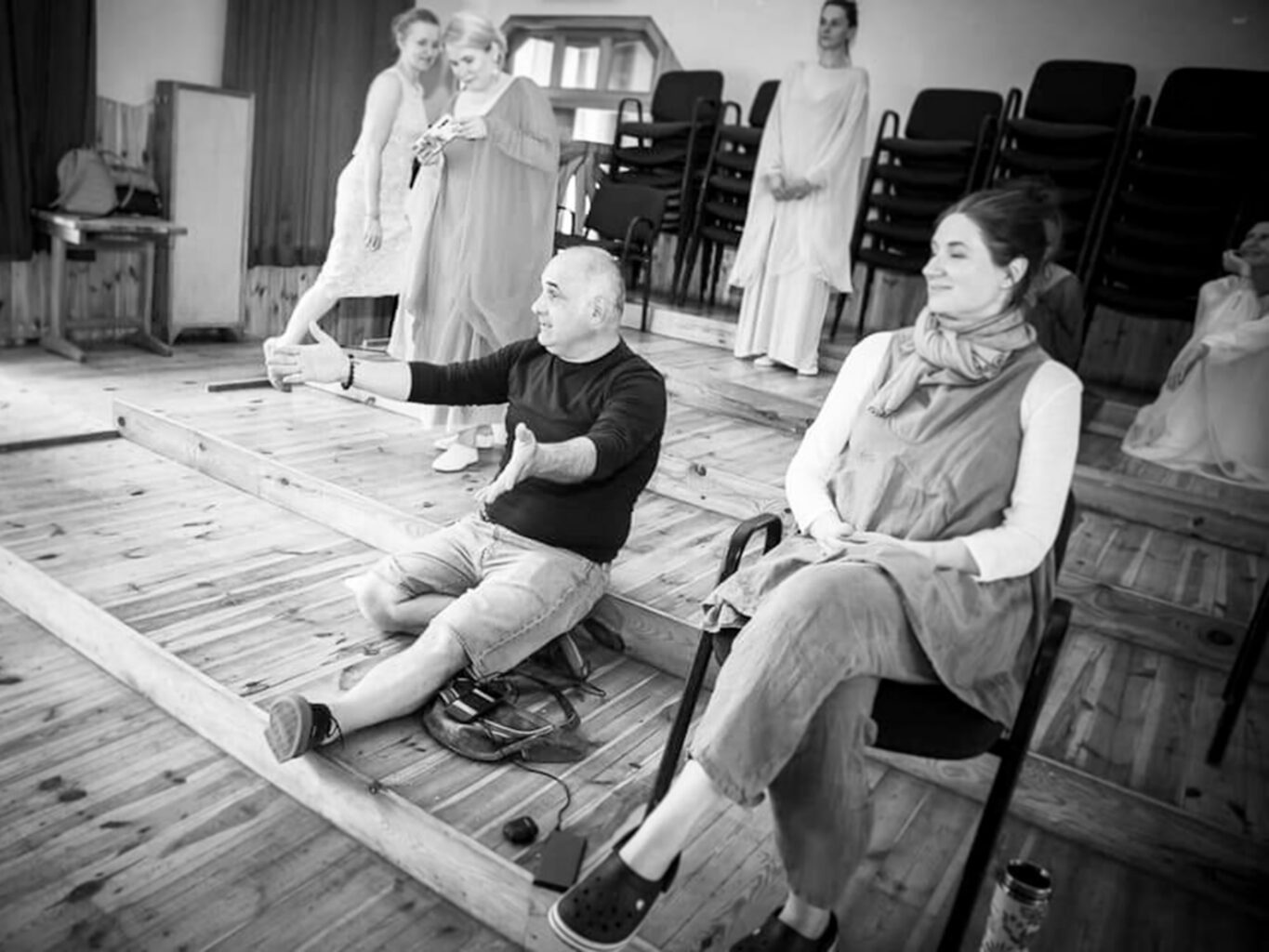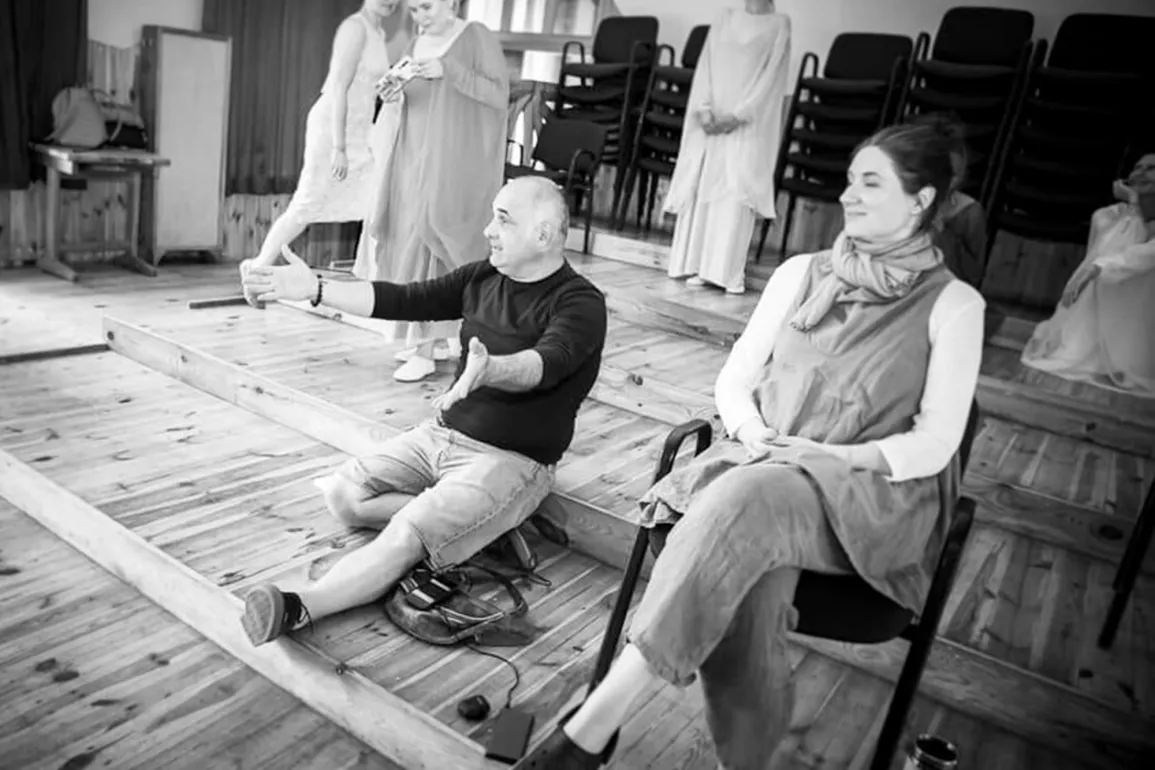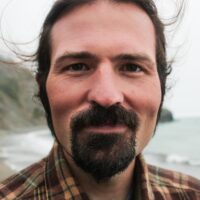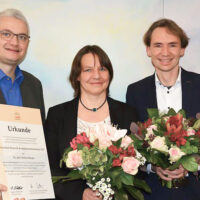I wanted to hold a conference to share the speechlessness after the 23rd of February 2022. So I asked friends and colleagues if we could talk about the catastrophe in Ukraine over the phone.
I always recieved a ‹yes› uncomplicated and close. Ulrich Meier, priest of the Christian Community and co-director of the seminary in Hamburg, was the first interlocutor. There is the helplessness that one naturally feels, he began, recalling how Rudolf Steiner connected with the fallen soldiers in his lectures during the First World War. This is a spiritual and at the same time pragmatic initiative. Ulrich Meier described to me a reference from Wolfgang Schad: If people would fight with each other in a more spiritually open and natural way, then the disputes would not end up in the sphere of violence and death. Schad observed that people are avoiding spiritual conflicts, and that fuels the war, and behind a war there is an idea of man. “Are we,” Meier asked, “advocating enough for the idea of man that is then expressed in all anthroposophical cultural creations?” Controversy is important, but it must be conducted in the spiritual.
Mechthild Oltmann, also a priest of the Christian Community, opened the conversation by saying that she had experienced the Second World War. «The first thing that occurred in me was fear. You feel so terribly powerless and you don’t know what to hold on to inwardly.» Then she described two reactions within herself, a first, intimate one: «When you can’t fall asleep in the evening and then realise how sheltered, warm and protected you are, then all of a sudden this security is no longer so self-evident. A second sentiment concerned public reactions and comments. «I wished that people would not try to understand the person who gave the marching orders with explanations, but rather be clear about the fact that it is a crime through which thousands of people are dying. Starting a war in the 21st century is madness.» She added that as with the pandemic, as with the climate crisis, this war was about all of humanity. Even in South America, people feel it is their concern and are taking to the streets. While in the 20th century there was a lot of talk about the ‹world›, such as the world economy, world war, now the focus is on humanity. This is the view ‹downwards›. Looking ‹upwards› leads them to three words of peace in the Gospel. First, the Christmas message of the angels in Luke’s Gospel: «Peace on earth to men of good will.» Peace presupposes good will! Then she quoted the seventh Beatitude of the Sermon on the Mount: «Blessed are the peacemakers.» Here, she described, it is not the peace‹ful› who are addressed, but those who can bring about peace. Then she moved on to speak of the third stage: In John’s farewell discourses, there is talk of Christ ‹giving› his peace. One must, Oltmann said, be ready to receive peace as well. She recalled the observation that in a dispute with one’s fellow human beings, one is dependent on the other person’s contribution to peace. Peace cannot be generated entirely on our own. The angels can help if we are prepared to create peace and are able to accept it. Therefore, in the act of consecration, it is said: «Peace can be with you because I give it to you.» Peace has a source. In this way, humility is added, whereas pride can resonate in the sole bringing of peace. Asking for peace is also part of peace.
I had another conversation with Nikolai Fuchs, who is in charge of the GLS Bank trust. As he describes his current feelings, we have rallied behind the wish that something like this Russian incursion into Ukraine would not be possible. We did not want to believe it, although the signs, like the armament in the last months, like certain speeches or the military actions in Syria, pointed to it. He could understand the argument of the sphere of influence, the phobia of encirclement, and he recalled the interventions and CIA actions of the United States in South America. However, it is contradictory to declare NATO’s proximity as a pretext for being allowed to invade Ukraine and at the same time to emphasise that one is not afraid of NATO. Fuchs compared the weakening of natural landscapes with that of social landscapes: Agriculture is often about regenerating nature and then improving its resilience. After the catastrophe of the Second World War, there were several waves of regeneration: the German economic miracle and the prosperity for broad sections of the population in Eastern Europe after 1989. To speak of «flourishing landscapes» was not wrong at the time. While the gdp has increased fivefold in the new EU countries of the Baltic States, it has only doubled in Ukraine. The EU has been the key zo develop, to transform from industrial worlds to service worlds.
Deriving from the fear of being occupied if they were economically successful, the will grew to also become a member of NATO. When Georgia and Ukraine were promised this, the fuse was lit. Fuchs sees the danger here, which is difficult to calculate, that the Russian government will indeed not be able to free itself from the dream of restoring the borders of the 1990s. This explosive situation shows the dilemma of pacifism: It has hidden behind deterrence and is therefore not really credible. With the stalemate of weapons systems, pacifism is only seemingly a rejection of violence. Now we are challenged in our identity, challenged as humanity, to learn what we did not learn in the 20th century and is now breaking in as ghosts of older times. In the GLS Bank they had recently read Dostoevsky’s ‹The Grand Inquisitor›. There, the count argues that humans are not ready for freedom. This is how Russia is acting now. The man of freedom and the sovereign state do not count. With autocrats at the helm in countries like Brazil, Turkey or Hungary, the phenomenon of the grand inquisitor is a phenomenon of our time. Even a look at enlightened democracies shows, according to Fuchs: Referendums in Switzerland, the most democratically developed country with high educational standards and a free press, regularly turn out conservative. One’s own peace-loving identity is shaken and called upon to rearrange itself, to set itself up anew. This calls for a comprehensive discussion process.

Ingo Krampen, lawyer and mediator, emphasised that such an abundance of power in a person already carries the spark of war. That no longer fits our times. What did Putin demand behind the scenes in the discussions at top-level? Was it all really unfulfillable? Of course it is inhumane and contrary to international law for Putin to wage a war of aggression. But is there really no alternative to the attitude of the West, which at least verbally promised Gorbatschow that it would not expand NATO eastwards? Only armament and punishment? Couldn’t there still be an understanding, if not with Putin, but with Russia?
In an interview, Michaela Glöckler takes the current title of Spiegel magazine ‹Putin’s War› as an opportunity to explore possible conditions for de-escalation processes. One-sided demands and blame feed conflict, not peace.
Andreas Heertsch, a physicist from Arlesheim, sent me Ita Wegman’s book ‹To the Friends›. In it, she describes that, according to Rudolf Steiner, there are demons whose secrets can only be learned by human beings and then decoded by gods. In such a human-divine cooperation, “where darkness reigns, the light can shine again”.
After midnight I reach Lasha Malashkhia, the head of the eurythmy school in Kiev. His family is already in Tbilisi. Now he is driving another family the long distance to Poland in endless traffic jams. I ask over the mobile phone how he is. «I try to build a community with this beautiful person Tatyana (his wife) drop by drop, minute by minute. Suddenly archaic forms of problem solving from the past burst in and throw everything into disarray. Then I ask myself, what am I doing in this empty space? Steiner says that Christ lives in children up to the age of three. I have four eyes of Christ in the car here. It is the third night that we have been driving. I am immensely tired.»






Thank you for these enlightening articles.